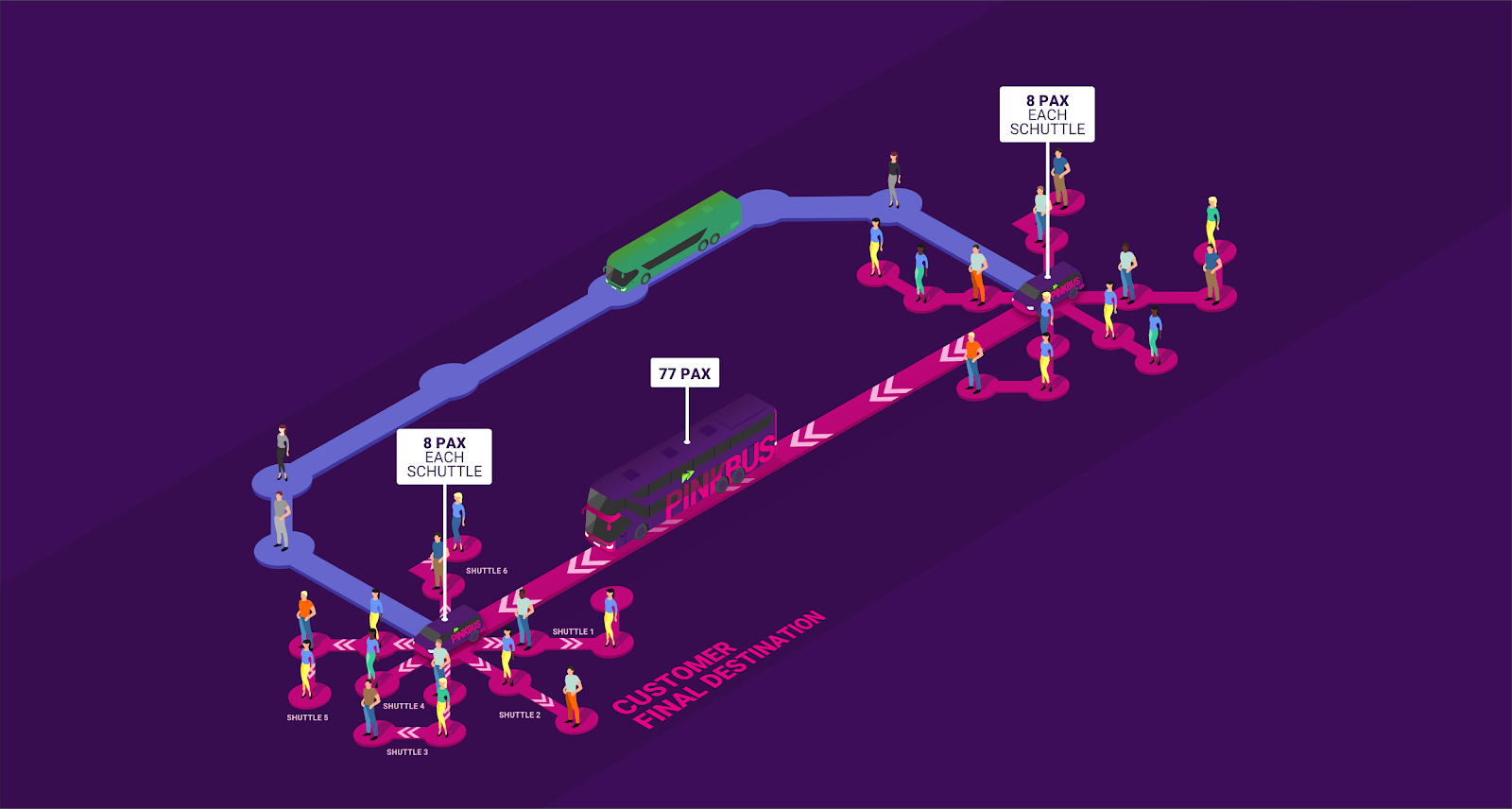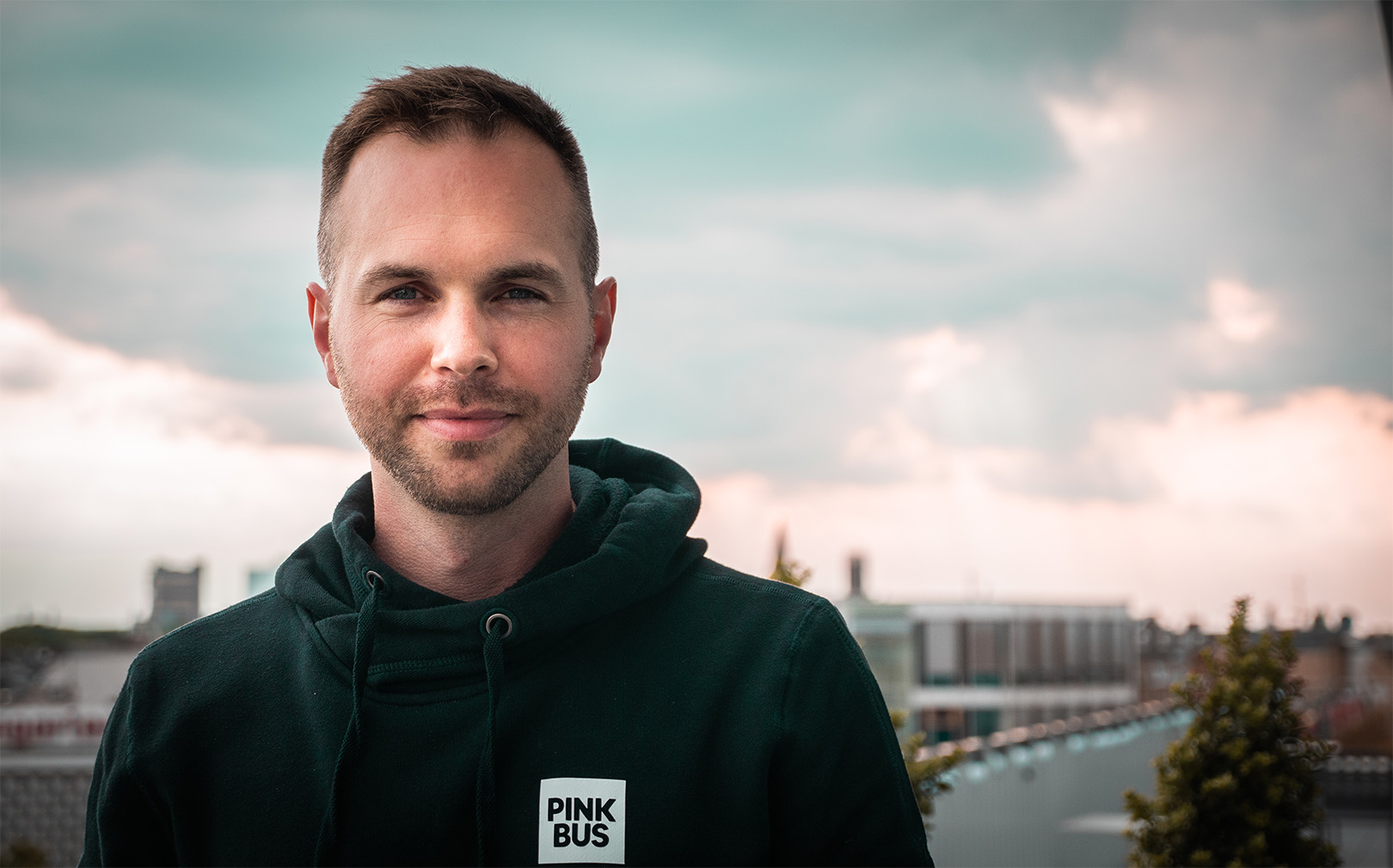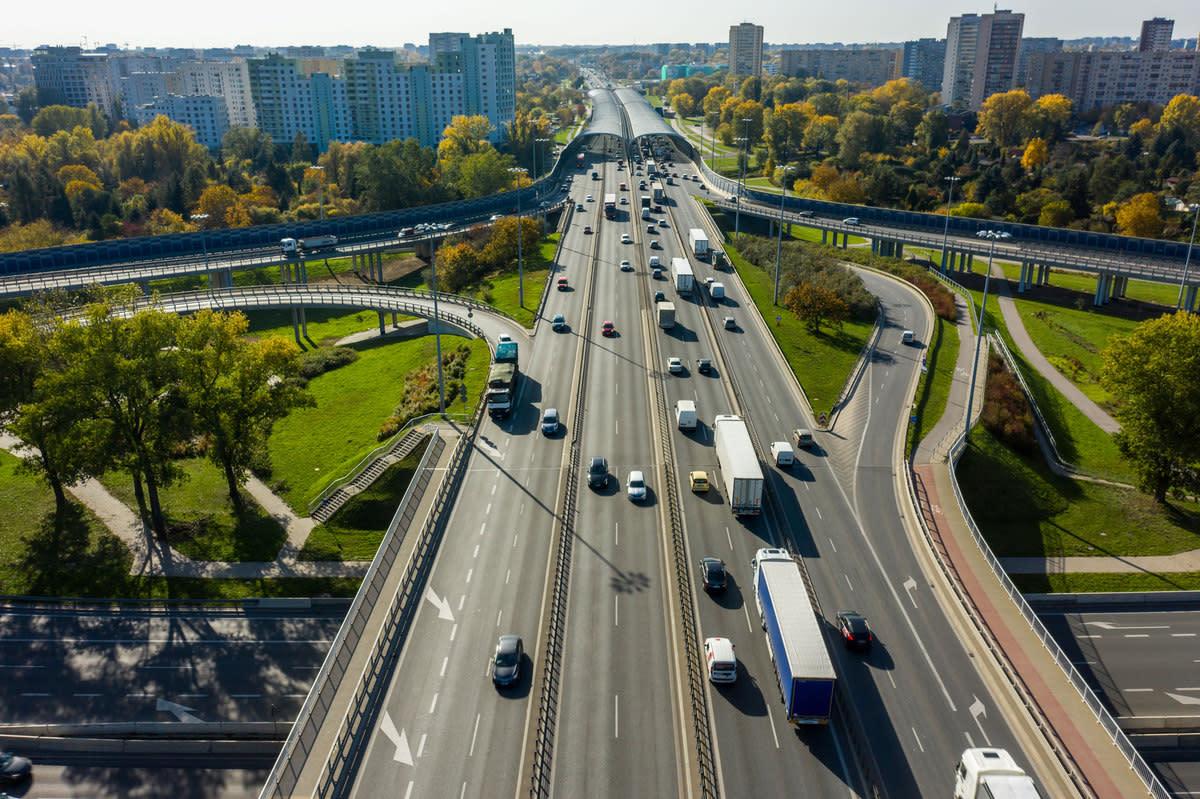Interview with Mobility Expert Christian Höber, Co-Founder Pinkbus
With years of experience in transportation, Christian has seen an immense opportunity for a sustainable, affordable and fast long distance bus company. 2019, together with his business partner Tino Engelmann, he founded the long distance bus service Pinkbus - one of the eco-friendliest bus fleets in the intercity travel sector. Learn more about Christian's view on the developments in the mobility market.
Looking at ongoing changes in the German mobility landscape, what are the biggest trends and needs you are observing?
Looking at the landscape of air, train and bus travel, we have seen that the air and train travel industries were booming, while the bus segment was seeing a different development. Even though air travel has reached its capacities due to limited availability of plane slots at airports, the industry has been thriving before Covid-19 and train routes were also successfully pushed to maximum frequencies. On the contrary, bus travel has been barely growing after a double digit growth from 2013 and 2018. This is actually surprising as bus transport doesn’t have to deal with the same strict regulations as air or train travel. However, bad user experiences and increasing prices have led to the fact that bus transport wasn’t growing as expected anymore. That is why we saw an increasing need for a truly customer-centric bus travel service.
What would you see as the three key elements everyone should consider when creating a new mobility service?
From my perspective every new mobility service should be focused on:
- Decreasing the travel time,
- Being more cost efficient and
- Offering a hassle-free service (online and offline).
With your company, Pinkbus, you are connecting people on the long distance. What made you decide to start a new long distance bus line?
Back in 2015, two years after long distance coach lines were introduced to the German market, express bus customers (ca. 30% of the bus market at the time) switched back to train services - mainly because of unexpected long travel times due to „hidden stops“ on bus routes. We wanted to offer a real alternative to train and plane services by cutting out hidden stops and reducing travel time on bus routes.
In the context of long distance travel, what role do ecosystems play?
They have an essential role: Customers look at the full travel route prior to booking a long distance trip. If you offer the best long distance service but the ecosystem doesn’t support this service, customers will still turn to competitors who offer them a better or more convenient experience. You could compare it with cheap air travel services where customers turn away from the service because of expensive parking at the airport or a remote airport location.

How have customer needs changed during your time operating in the mobility field and how do companies need to adapt?
When long distance services became more popular in Germany around 2013, they were able to fulfill a big need of their customers. However, since 2015 long distance coach express customers started to switch again from bus services back to mainly train services. As it was faster for them and could also compete from a price perspective. To work against this trend, long distance bus operators should focus on winning back the express customer from train and plane services by being even more customer-centric and listening even more to their customer’s needs.
The need for a working mobility ecosystem is closely related to sustainable goals. Which steps do you think are to be taken within the bus travel industry?
There are two main factors influencing a customer choosing a specific mode of transportation: speed and price. In our industry, however, travel time can usually only be reduced in the long run. For example, if faster planes are built or train tracks are of better quality, so that trains can go at a higher speed. This means that, in the short and medium run, mobility companies need to have a closer look at how to reduce operational costs and therefore offer lower prices. This asks for mobility companies to become extremely efficient with their operations and products. Take Tier as an example: Tier is doing a great job by further developing their own scooter to increase the scooter’s lifetime.
Data is already extremely important in the planning process of new mobility services. When developing a new route for long distance bus travel we need to know how many people are traveling on the desired route and which mode of transportation they are currently using and why. Without these touchpoints, route expansion would simply be trial and error.
Thinking about data - how important is data for your mobility business now and for the mobility of the future?
Data is extremely important as it is already needed when planning new mobility services. At Pinkbus, we need to know how many people are traveling on the desired new route and which mode of transportation they are currently using and why - in order to develop new routes. Without these touchpoints, route expansion simply turns into trial and error - eventually costing much more than sufficient data would. While operating a service, mobility companies continuously need to have a close look at the available data to detect shifting consumer behavior. Only this way, they will be able to adapt their services to their customer’s needs.
About Christian Höber
 Christian already grew up with buses as his father owns a small transport company and operated part of the public transportation network for the city of Paderborn. Bringing along a lot of experience and know-how in the field of mobility, the Hult IBS of San Francisco graduate co-founded the long-distance bus operator Pinkbus in 2019. To him, mobility means getting from A to B as cheaply, easily and quickly as possible.
Christian already grew up with buses as his father owns a small transport company and operated part of the public transportation network for the city of Paderborn. Bringing along a lot of experience and know-how in the field of mobility, the Hult IBS of San Francisco graduate co-founded the long-distance bus operator Pinkbus in 2019. To him, mobility means getting from A to B as cheaply, easily and quickly as possible.
About Pinkbus
In 2019, Christian and his business partner Tino Engelmann saw the need for a sustainable and customer-oriented alternative to expensive rail travel and environmentally harmful air travel: The new long-distance bus brand Pinkbus holds the eco-friendliest bus fleet in the intercity travel sector and offers customer-oriented bus services without extreme price fluctuations and annoying intermediate stops. Pinkbus was founded with a clear objective in mind: mobility should be sustainable and available to everyone. In other words: eco-friendly, affordable and easy.
 Simone MittererGlobal Head of Brand and Communications, Germany
Simone MittererGlobal Head of Brand and Communications, Germany

